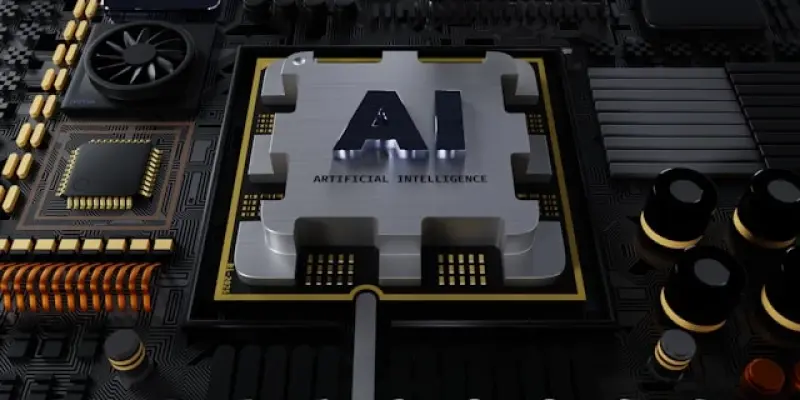In the rapidly evolving domain of artificial intelligence, Dell Technologies Inc. stands at the intersection of legacy infrastructure and cutting-edge AI advancements. This dynamic poses unique challenges and opportunities for the company as it strives to capitalize on the burgeoning capabilities offered by AI while steadfastly supporting its extensive hardware ecosystem. Dell’s journey in navigating this intricate landscape is characterized by its strategic initiatives aimed at integrating AI seamlessly with existing systems, fostering growth, and ensuring continuity in traditional business operations. At the heart of this exploration lies a critical examination of Dell’s strategic blueprint, which involves harnessing AI capabilities alongside maintaining its entrenched legacy systems.
Strategic Imperatives in AI and Infrastructure Integration
Development and Implementation of AI Factory Systems
Dell seeks to address the complexities inherent in advancing AI technologies by concentrating on developing full-stack AI factory systems. These systems are engineered to collapse the silos of existing infrastructure, thereby unleashing their latent power and facilitating seamless integration with AI solutions. This initiative is not just about modernizing technology but also about aligning Dell’s operations with the demands of power-intensive, parallel workloads characteristic of AI processes. By focusing on the modernization of its servers, storage, and networking, Dell aims to provide robust support for AI growth within its technological ecosystem. The drive to harness AI intricately involves leveraging its formidable global channel network, which consists of over 200,000 partners worldwide. This network represents a vital asset in Dell’s strategic arsenal, offering both breadth and depth in deploying AI at scale across diverse markets.
Channel Network and Market Opportunities
Moreover, Dell is actively pursuing opportunities in market dynamics influenced by generative AI advancements. This pursuit is part of a larger strategic alignment that seeks to optimize the value of infrastructure investments in alignment with the rising significance of AI capabilities. In January 2023, a pivotal shift in market perceptions occurred with what was termed the “ChatGPT awakening.” This event signaled a substantial revaluation of the potential infrastructure investment for AI optionality, marking a peak stock value progression from approximately $40 to just over $160 in early 2024. While the subsequent rationalization has stabilized stock values near $112, the strategic imperative to align Dell’s equity story with AI-driven market opportunities remains as crucial as ever.
Financial Dynamics and Strategic Movements
Capital Returns and Efficiency Optimization
Dell’s strategic choices include a pronounced focus on returning capital to shareholders, fundamentally shifting its approach from incremental research and development (R&D) or mergers and acquisitions (M&A) to driving structural changes internally. This strategic focus has proven profitable and continues to resonate with investors. Such an approach is attractive to value-oriented funds previously unengaged with Dell, highlighting the company’s priority in optimizing operational efficiencies through AI applications. By concentrating on internal structural adjustments, Dell positions itself to benefit from enhanced efficiencies without solely relying on R&D or external acquisitions.
Operating Segments Evolution
The operational structure of Dell spans two principal segments: Client Solutions Group (CSG) and Infrastructure Solutions Group (ISG). While CSG represents a low-margin, high-volume business critical for ensuring supply-chain strength, ISG serves as the bedrock for AI-optimized configurations, promising higher average selling prices and margins. This segment is split between servers and networking on one hand and storage on the other, both showing distinct shifts toward configurations optimized for AI processes. By strategically reallocating resources and altering configurations toward AI, Dell aims to capture the higher margins offered by these enhanced systems while bolstering its reputation as a provider of sophisticated AI technologies.
Transitioning AI Opportunities
Integrating AI with Traditional Systems
The transition toward AI-focused solutions serves as a significant growth catalyst for Dell, presenting both challenges and opportunities. A key challenge lies in locking AI into existing infrastructure without marginalizing traditional server deployments integral to business operations. Nevertheless, this integration presents lucrative avenues, as Dell views the move to incorporate accelerator-dense, AI-ready systems within enterprise footprints as a substantial opportunity. Ensuring this integration requires Dell to maintain a balance between innovation and the sustainability of its legacy systems.
Leveraging Supply Chain Strength
The comprehensive supply chain that Dell commands sets it apart from competitors, particularly in terms of its installed base. The advantage of maintaining such a thorough supply chain is underscored by the ability to implement end-to-end integration of AI solutions with lower unit costs, providing a structural competitive edge. Competitors often fragment their solutions, whereas Dell’s integrated approach ensures cohesive deployment of systems. This supply chain leverage becomes even more significant as the company commits to maintaining its breadth and depth in delivering AI solutions across markets.
Conclusion: Dell’s Dual Strategic Path Forward
In the fast-paced world of artificial intelligence, Dell Technologies Inc. finds itself at an important crossroads, bridging traditional infrastructure with the possibilities brought about by AI advancements. This unique position offers both challenges and opportunities for Dell as it seeks to leverage the growing capabilities of AI while continuing to support its extensive hardware ecosystem. Dell’s journey through this evolving landscape is marked by strategic moves designed to seamlessly integrate AI with its existing systems. This approach aims to foster growth while ensuring that traditional business operations remain uninterrupted. Central to this endeavor is the critical examination of Dell’s strategic plans, which focus on utilizing AI technology alongside maintaining its firmly established legacy systems.
Dell’s strategy involves exploring how AI can be effectively incorporated into its product offerings without disrupting its long-standing business models. By doing so, Dell hopes not only to innovate but also to maintain the reliability and quality that its hardware customers expect. Furthermore, Dell aims to harness AI to enhance the efficiency of its operations, ultimately driving better customer experiences and unlocking new avenues for growth. As the company continues to navigate these complexities, its commitment to balancing innovation with tradition showcases Dell’s dedication to both progress and stability in the ever-evolving tech landscape.

